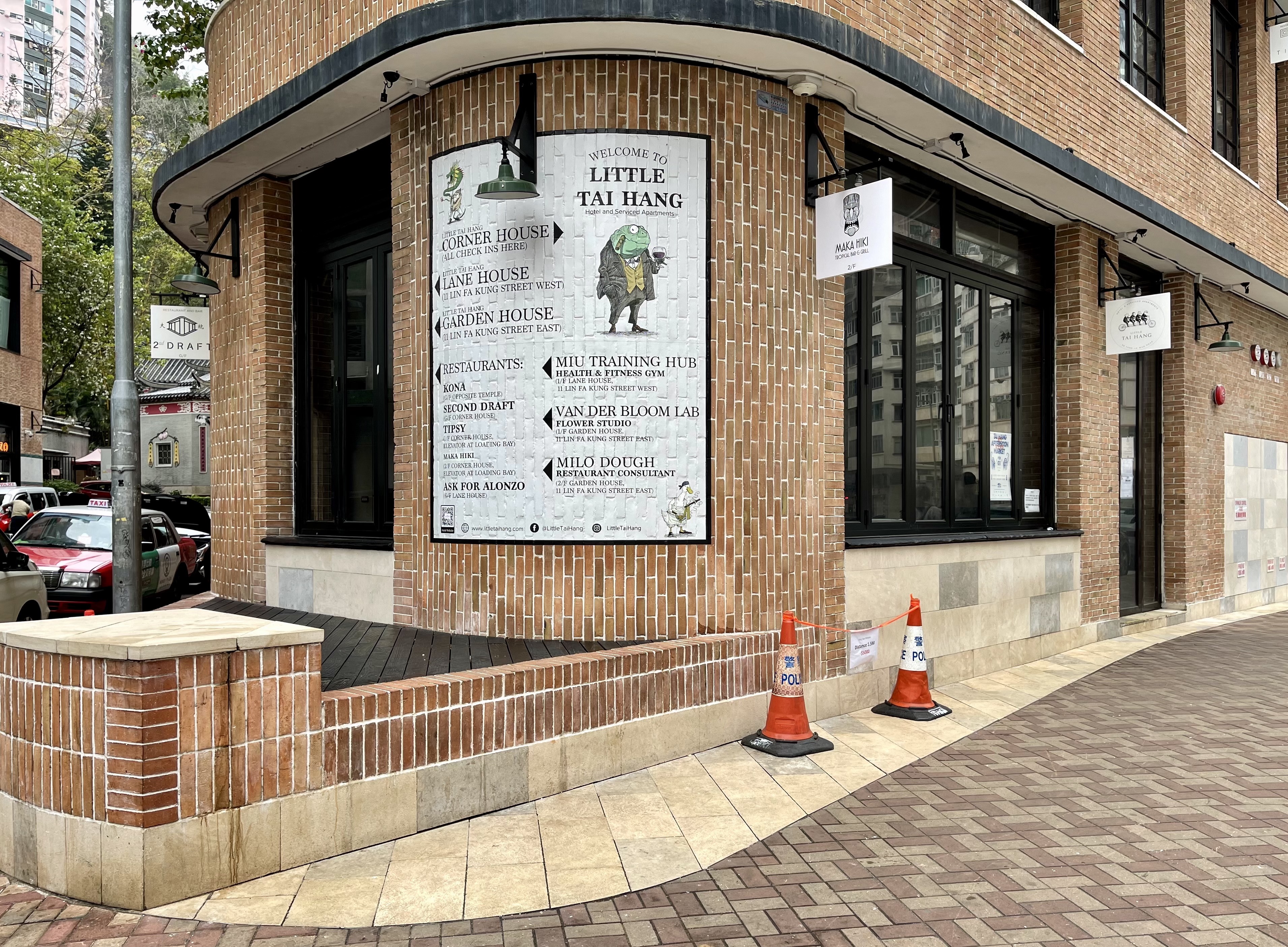All things start with our first impression. Our first view of our new flat, windows and doors, is hard to reconcile with the original architecture plans. Was this really a balcony? Our neighborhood likewise. Were these really all car shops, we think, wandering Tai Hang? Some, surely, as they are today, but not all. Was this coffee shop not always here? In this neighborhood the answer is it was not, one of a half dozen to have opened since the pandemic started. Unlike dinner restaurants and bars, coffee shops have boomed the past two years. There are no tourists, but there are thousands of Hong Kongers looking for something new, for a new neighborhood to explore and a new latte to try. Every few months a new sign goes up, a new restaurant is closed for re-modeling.
Some things we have seen change already, early in our time here, and struggle to envision what was before. Fineprint downstairs opened three months after our arrival and I have no memory of what preceded it. As with so many things the answer is several months of empty shop front under construction and so there is no earlier place to be overwritten.
And yet change does not pause.
In our fourth year in Hong Kong the change feels faster. Two places we have enjoyed close within a month, and we wonder what will happen. In our minds they have always occupied these corners, have always featured folk hanging outside on Friday evenings after work. The shock wears off, and we visit them one last time for the memories, noting wear spots on counters and scratches left on the floor by chairs. These signs of use, common to any venue, take on new meaning in our conversations. Did the owners know, and stop making repairs? Most likely not. Any space inhabited by humans is worn down through their contact. Our apartment, despite a re-painting on year two, features a few marks on the walls by the kitchen, where bags or the bouldering pad have rubbed, where careless turns chipped paint. Maintenance is a requirement, needed by private and public spaces alike. The corner we frequent outside Second Draft, one of the closing spots, pictured above, was repaired a few months back, the boards replaced and painted.
Seen in this way the turnover of businesses, rather than a commentary on landlords, neighbors, or the pandemic, is a way to make sure that things are fixed, and to give us all a chance to anchor our memories to moments in time. Whatever fills those spots next will be remembered as much for what they replace as for what they bring.
At least at first.
